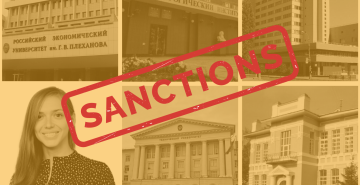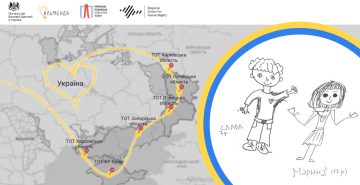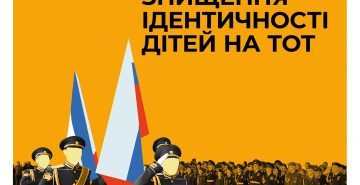

Expert conclusions of the study “Textbooks and war: educational literature in theRussian Federation as a tool for destroying the identity of Ukrainians”
After Russia occupies Ukrainian territories, the Russians, with the help of local collaborators, immediately create occupation administrations and begin to establish the “Russian order”. Part of the aggressive actions of the “new government” was the policy in the field of education, which included actions to “denazify” children and youth.
Almost immediately after the occupation of part of the Ukrainian territory, there were numerous statements by the Russian authorities that the “denazification” of Ukraine should begin with the replacement of the school curriculum and textbooks in the temporarily occupied territories by Russia.
The speaker of the “parliament” of the occupied Crimea, Volodymyr Konstantinov, emphasized that as a result of the use of Russian textbooks in educational institutions on the Ukrainian occupied territories, another generation will appear in 10 years.
In order to “denazify” and “spread Russian narratives”, the occupiers began to destroy Ukrainian books and textbooks. Instead, Russia actively imports its school textbooks and literature to the occupied territories.
CCE “Almenda” and its partner “Regional Human Rights Center” analyzed 23 Russian school textbooks seized from the de-occupied territories of the Kharkiv region in the fall of 2022.
IMPORTANT.
Visualization of illegal actions and war crimes of the Russian Federation in the field of education became possible after the liberation of parts of the Kherson and Kharkiv regions in the fall of 2022.
Thus, the Office of the General Prosecutor, within the framework of criminal proceedings, seized textbooks from educational institutions of the Kharkiv region, according to which Ukrainian children were taught during the occupation, the contents of which testify to the systematic violation by the Russian educational policy of a number of norms of international humanitarian law and international human rights law, in particular the principle of the status quo ante bellum (the duty of the occupying state to preserve and maintain, as far as possible, the legal status and conditions of social life that existed in the relevant territory before its occupation), the principle of “proper education”, the right of children to preserve their identity, cultural identity, the demand for the prohibition of war propaganda, the right of parents to ensure the education of their children in accordance with their own worldview.
The specified textbooks, 23 units in number, were seized from educational institutions of the Kharkiv region, by the decision of the prosecutor of the General Prosecutor’s Office, they were recognized as material evidence, and they were seized by the decision of the investigating judge. Currently, the pre-trial investigation on the above-mentioned facts is ongoing.
Here is available Expert conclusions of the study “Textbooks and war: educational literature in the Russian Federation as a tool for destroying the identity of Ukrainians”
The material was prepared within the framework of the project “From Fixation to Justice: Ensuring War Crimes to be Properly Documented”, implemented by the Regional Center for Human Rights with the financial support of the International Renaissance Foundation. The material reflects the position of the authors and does not necessarily coincide with the position of the International Renaissance Foundation.
English design of this material and its printing were prepared by the Center of Civic Education “Almenda” as a part of the project “Steps towards the meeting: bringing youth from temporarily occupied territories closer to reintegration”. The project is implemented with the financial support of the Ministry of Foreign Affairs of the Czech Republic as a part of the Transition Promotion Program. The views represented in this material belong to the authors and do not reflect the official position of the Ministry of Foreign Affairs of the Czech Republic.



